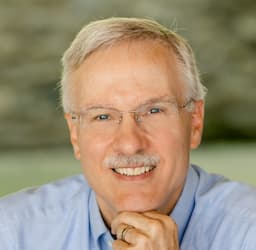Pastor Denied Entry to Trump Event Relates it to Not Getting Into Heaven
Greg Laurie, senior pastor of Harvest Christian Fellowship, a group of Baptist evangelical churches based in Southern California, took to social media this week to share a moment he said offered a stark spiritual reminder: not being on the list to enter a White House worship service.
Why it Matters
The pastor’s anecdote came days after he praised the Trump administration’s new White House Faith Office (WHFO), a federal initiative aimed at addressing anti-Christian bias in the United States.
In February, President Donald Trump established the WHFO, which replaced the Office of Faith-Based and Community Initiatives. It is led by Senior Advisor Paula White-Cain, a longtime spiritual advisor to Trump.
What to Know
On Thursday, Laurie found himself briefly barred from a White House worship event—an experience he later described as a striking metaphor for “the eternal stakes of faith.”
“So, I went to the White House to lead a prayer at their very first worship service—and guess what? My name wasn’t on the list!” Laurie wrote on X, formerly Twitter. “It reminded me of something far more serious—what Jesus said will tragically happen to some people one day when they step into eternity. They’ll expect to be welcomed into Heaven, but their name won’t be in the Book of Life.”
Laurie said the mix-up was quickly resolved after he filled out a “very official form” he had forgotten to complete, which allowed him to enter the service.
“No harp music or pearly gates—but a tremendous worship service packed with White House staff members ready to praise the Lord,” he added.
“I shared a verse from the book of Esther and reminded them that, yes, God has placed them there—for such a time as this.”
In a blog post from February, Laurie voiced strong support for the new White House Faith Office and pushed back against concerns about the separation of church and state.
Anticipating criticism, Laurie argued that the concept is often misunderstood.
“This statement is not in any official government documents, like the Constitution,” he wrote. “It’s a statement Thomas Jefferson wrote in a letter, with the idea being that the state’s influence should be kept out of the church, rather than the other way around.”
He described the current political climate as an “unprecedented opportunity” for Christians to share the gospel openly and without fear.
“This is not ‘Christian Nationalism,’ as some like to negatively say,” Laurie continued. “We are not trying to ‘push’ our faith on anyone. Rather, the opposite is true. We don’t want to force anyone to believe anything. We want them to open their hearts and see their need for Jesus Christ.”
Evangelical Christians remain a cornerstone of Trump’s base, playing a pivotal role in his return to the White House. According to a Pew Research Center survey conducted months before the election, 82 percent of white evangelical Protestants said they supported Trump and his policies.
Several Democratic leaders and affiliated organizations have expressed strong opposition to the WHFO and the Task Force to Eradicate Anti-Christian Bias established by Trump in February.
What People Are Saying
Greg Laurie, senior pastor of Harvest Christian Fellowship, wrote on his personal blog in February: “The First Amendment gives us the right to speak our minds, and we need to use this unprecedented opportunity that we have right now to proclaim the gospel.”
President Donald Trump, in his executive order in February: “The Founders established a Nation in which people were free to practice their faith without fear of discrimination or retaliation by their government. . . Yet the previous Administration engaged in an egregious pattern of targeting peaceful Christians, while ignoring violent, anti-Christian offenses.”
Pastor Paula White-Cain, leader of the WHFO, on X in February: “The office will work alongside Attorney General Pam Bondi to combat discrimination against Christians in federal institutions and ensure religious liberties are upheld across the country.”
Rachel Laser, president and CEO of Americans United, told WBBF: “Rather than protecting religious beliefs, this task force will misuse religious freedom to justify bigotry, discrimination and the subversion of our civil rights laws.”
What Happens Next
Although the WHFO has not faced direct legal challenges, its existence continues to be a focal point in discussions about religious freedom and the appropriate role of faith-based initiatives in the federal government.
—







